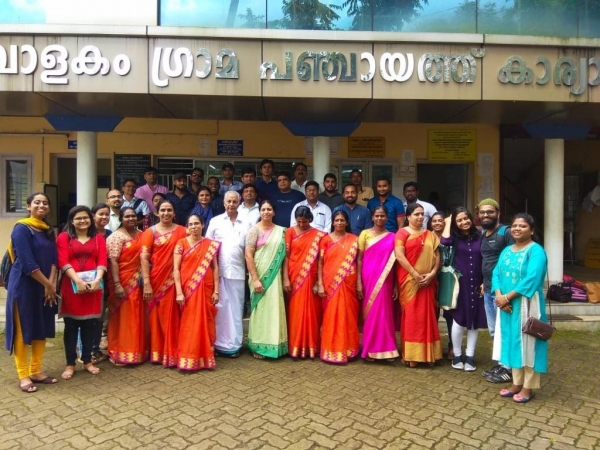When it comes to the socio-economic and women empowerment, Kudumbashree’s development experience in Kerala is increasingly gaining relevance as a replicable model for the rest of the world. With the objective of learning from its best practices, Kudumbashree has been attracting an end number of development professionals and organisations to experience how it has tried to address the issue of poverty from Kerala with the help of Local Self Government Institutions and other departmental convergence programmes. The year 2017-18 has witnessed the participation of 691 persons from 14 Indian states and one Union Territory through 32 exposure visits. Thematic Area, Learning Services at Kudumbashree National Resource Organisation coordinates such visits to Kudumbashree with the support of Kudumbashree, District Mission Coordinators at different districts.

Kudumbashree NRO is the technical and implementing agency for supporting two of its projects in 19 Indian States and one Union Territory, namely PRI-CBO Convergence Project and Start-up Village Entrepreneurship Programme. This necessitates SRLMs (State Rural Livelihood Missions) to get exposure to the Kudumbashree model of convergence and enterprise programmes in Kerala. The participants are majorly the community cadre, elected representatives and SRLM staff at state, district and block levels. The technical sessions along with the field visits helps the participants in building the right perspective in delivering the services under the projects.
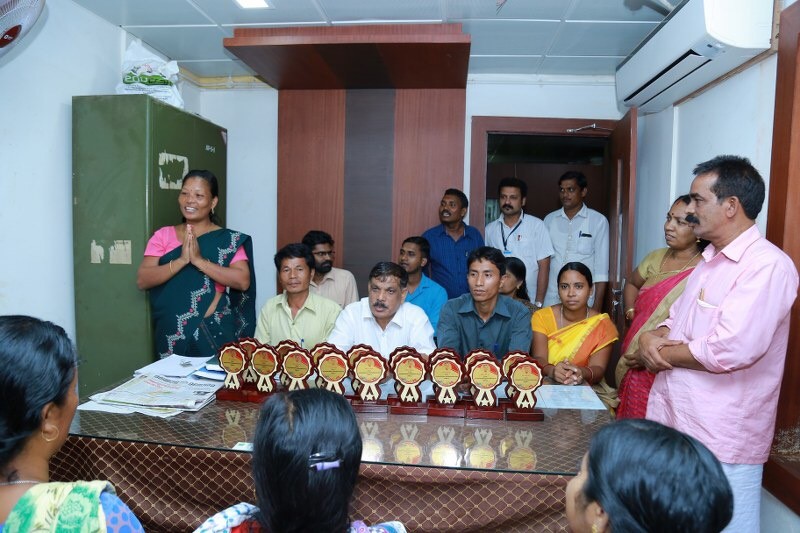
Kudumbashree NRO, since inception, has been hosting two kinds of exposure visits from various organisations within India. One is from the partner State Rural Livelihood Missions (SRLM) and the other is from developmental organisations like NGOs, CSOs and CSR undertakings. The partner SRLMs visits Kudumbashree to learn from the best models practiced under its two major projects, PRI-CBO Convergence Project and Start-up Village Entrepreneurship Programme (SVEP). ‘Panchayat Apprenticeship programme’ (PAP) and ‘Orientation Programme for Block Project Managers of SVEP’ are the two major categories of learning visits that are being organized under the respective domains of convergence and enterprises in NRO. Further, customized exposure visits are also being planned and organised for non-partner organisations based on the specific requirements in the areas of health, livelihood, gender, social development and so on.
Panchayat Apprenticeship Programme (PAP)
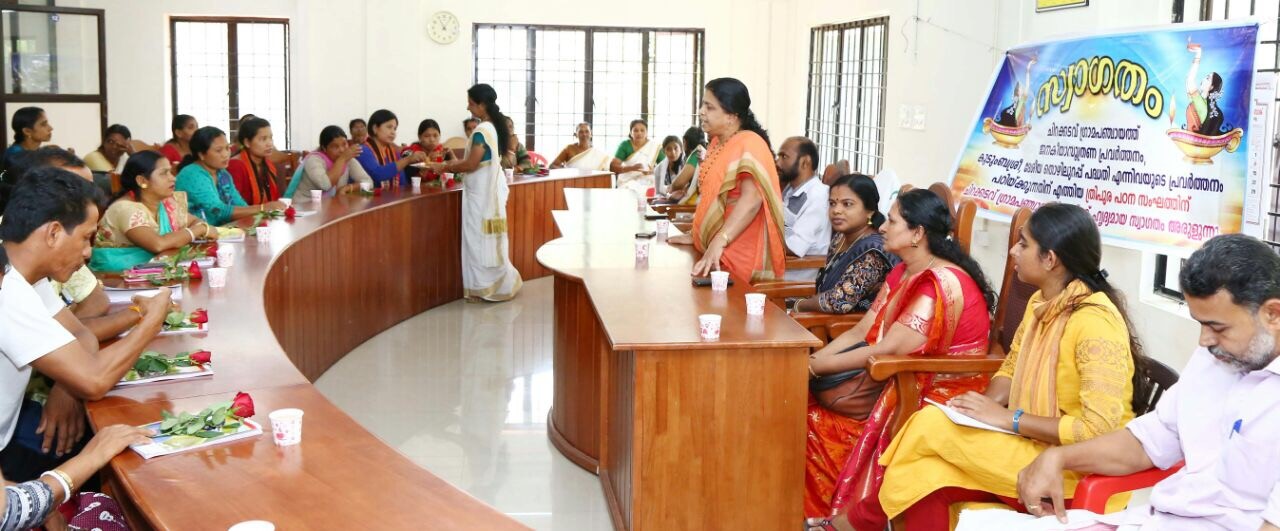
The Panchayat Apprenticeship Programme (PAP) is a rigorous learning programme for panchayat elected representatives and functionaries, CBO representatives and field personnel of NRO partner-states to learn the role of Panchayati Raj Institutions (PRI) in poverty reduction and development. The programme is designed to be of 5 days' duration with additional early morning and evening sessions to discuss the lessons learnt from the field. It also covers the role of community organizations and various other institutions in supporting the panchayat in performing its functions.
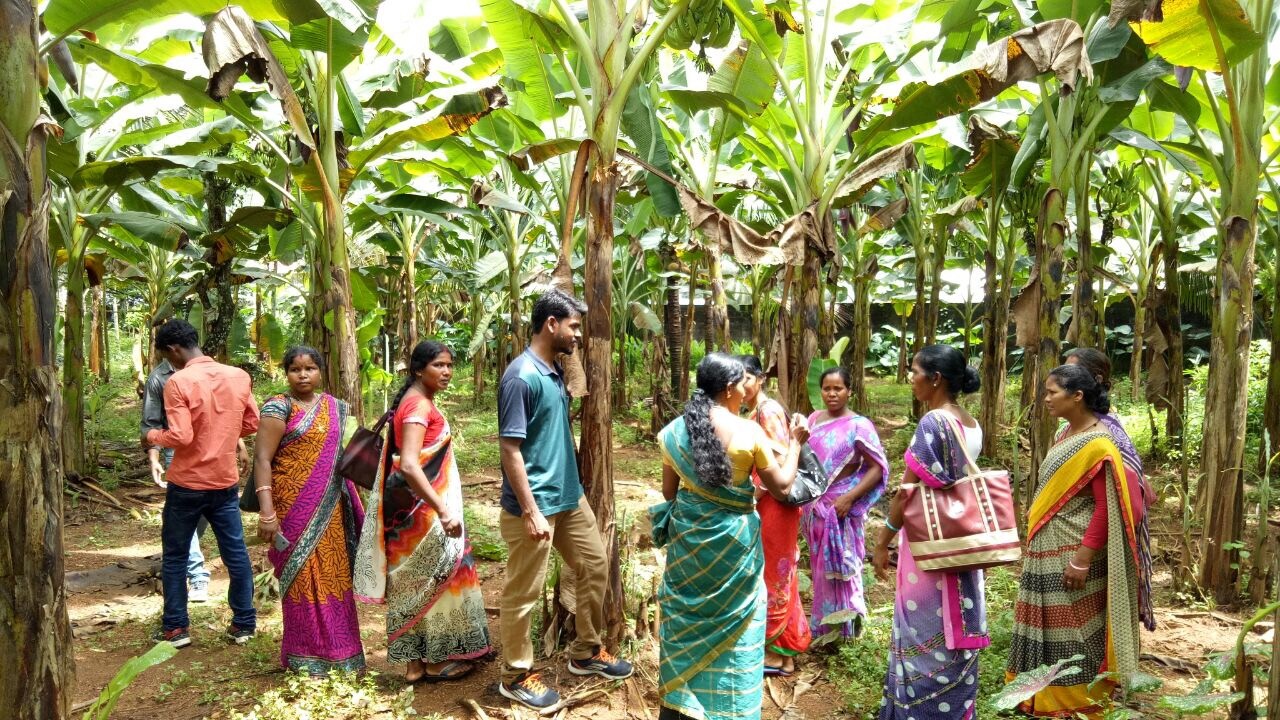
PAP gives first-hand learning experience to the participants for understanding the functioning of a Gram Panchayat in Kerala, its structure, funding, roles and responsibilities and how various institutions work with them in enabling service delivery to its citizens by means of effective planning and implementation. The participants will be able to see the convergence of the CBO network with the PRI and the various transferred institutions and how the citizens benefit from it. This can help and motivate the participants in taking steps to make their panchayats and other institutions effective for the development of the people.
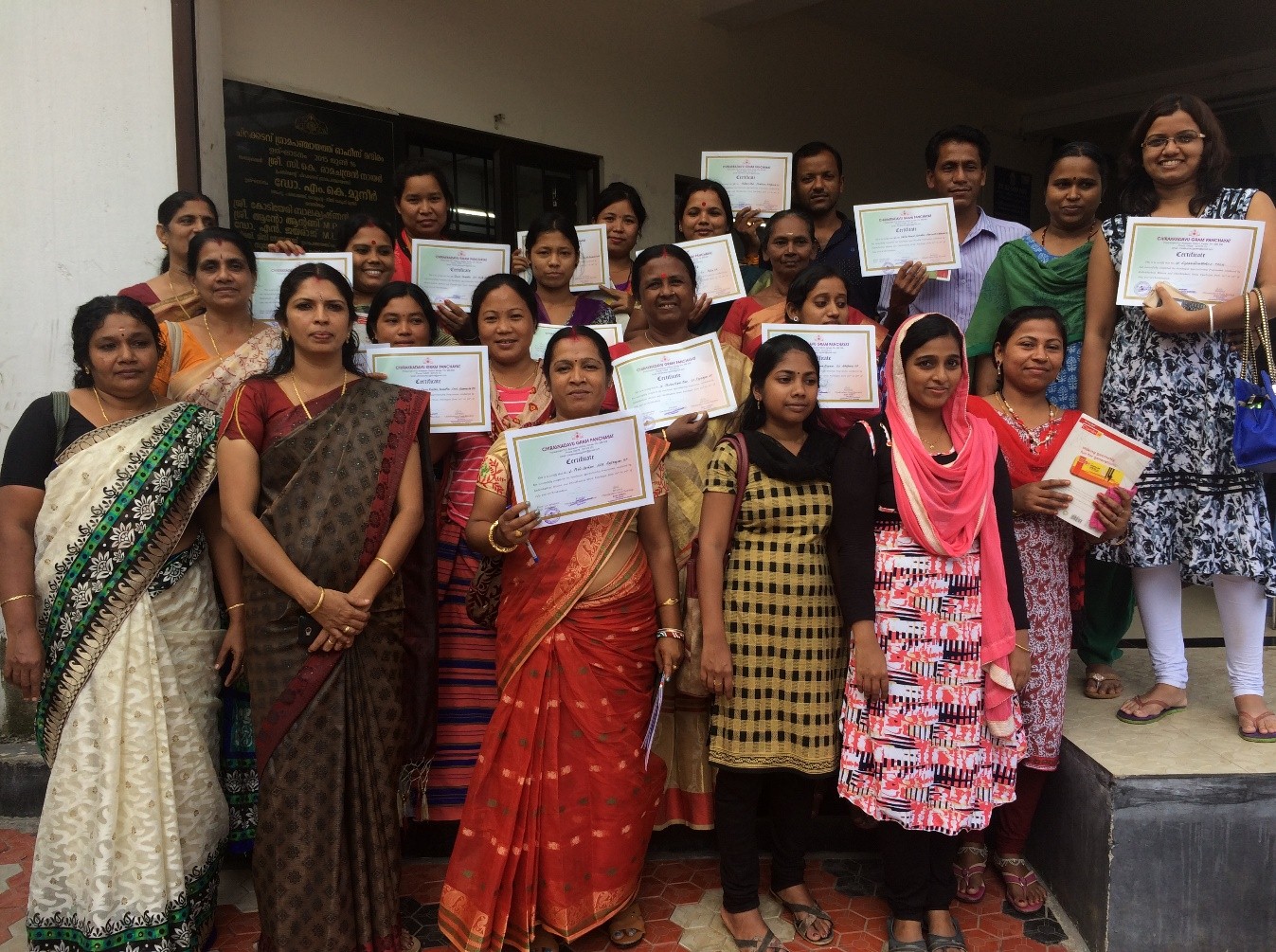
The methodology followed for the PAP includes visits to Gram Panchayat office, offices of various transferred institutions and Kudumbashree. During the visits, participants will have detailed interaction with the concerned representatives and officials. The facilitators of the PAP include elected representatives, leaders of the Kudumbashree network and officials of the transferred institutions in the Gram Panchayat and Kudumbashree Community Resource Persons (CRP). The representatives or officials will explain, with the help of case-studies and examples from their own experiences. The PAP also includes field visits to various projects and programmes of the GP and Kudumbashree. Some of the Kudumbashree programmes that are visited by the participants are Ashraya, BUDS School, Balasabha, JLGs, Micro-Enterprises, Snehitha. etc. A certificate is also issued to all the participants of Panchayat Apprenticeship Programme on behalf of the concerned Gram Panchayat and District Mission.
Orientation Programme for BPMs, SVEP
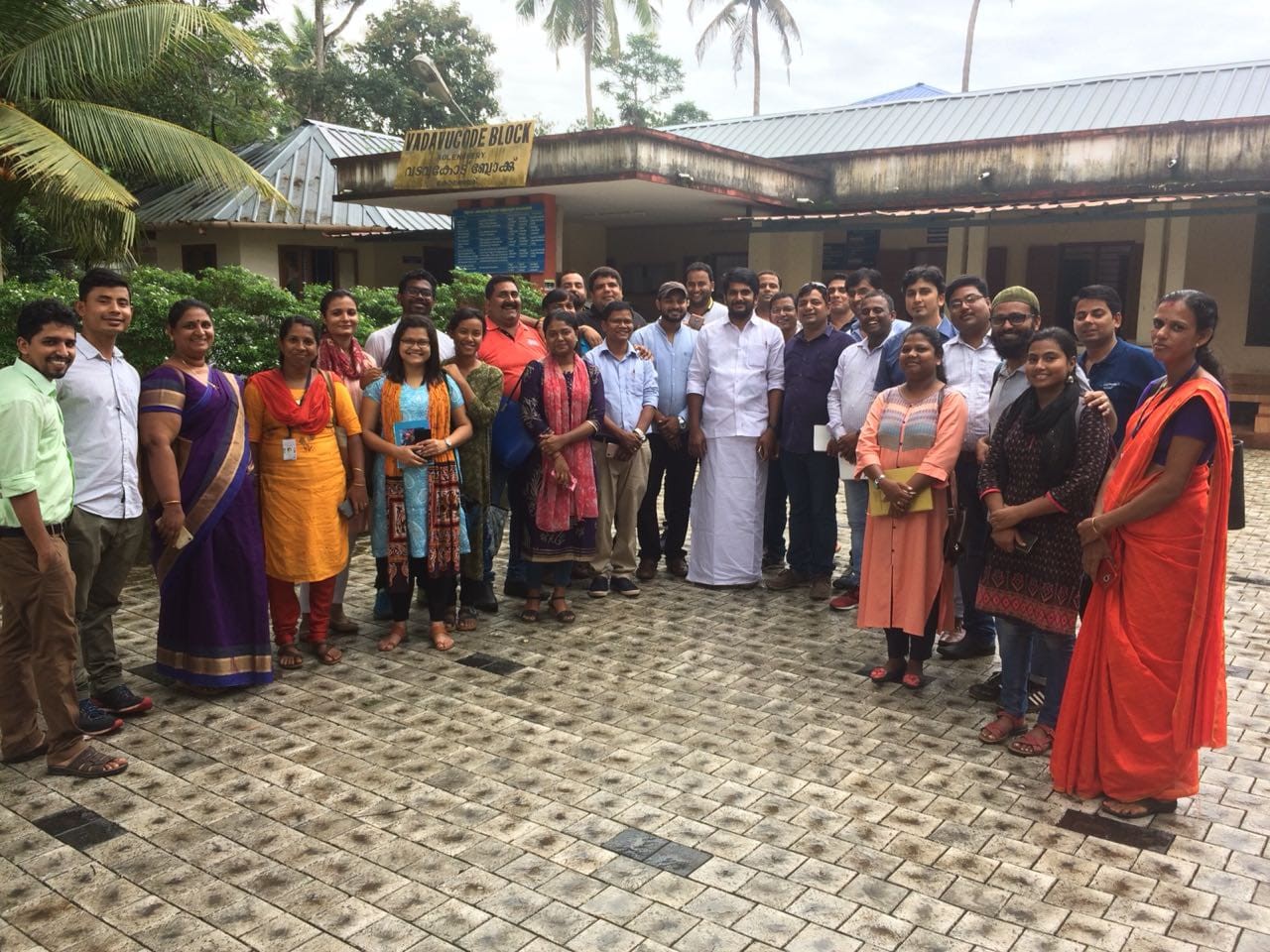
The orientation programme provided under the Start Up Village Entrepreneurship Programme (SVEP) aims at the training of the Block Programme Managers (BPM) from NRO partner states who are the dedicated professionals in charge of enterprise promotion activities at the block level under SVEP. SVEP is a programme with single point focus on the enterprise promotion in concerned blocks under the National Rural Livelihood Mission. Hence, the capacity building of these BPMs is found crucial with regard to their role in building the entire ecosystem for enterprise promotion in the block.
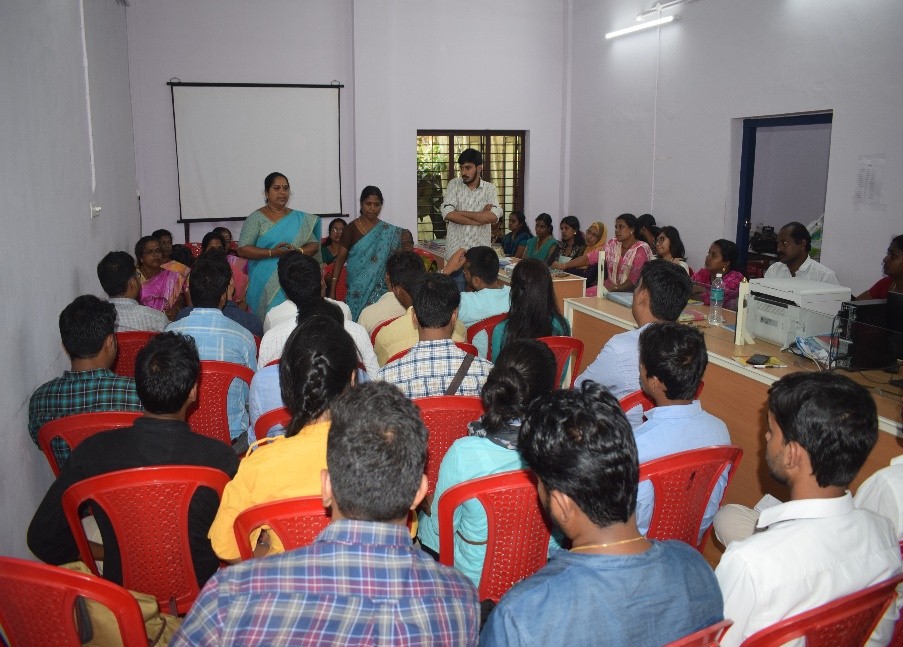
The programme is designed as a course of 7 days, each day covering specific project components of SVEP. The methodology followed includes visits to Kudumbashree CDS office, BRC office, Micro Enterprises under SVEP, District Mission Office and exposure to the different enterprise models under Kudumbashree like Nutrimix, Cafe and construction units. During the visit, participants will have detailed interaction with the concerned leaders from the CBO, representatives from Panchayat and implementing officials from the District Mission (BPM/ ADMC/ DMC. The exposure programme enables the BPMs to build a perspective on non-farm livelihood promotion under the NRLM structure and to learn how it helps enhance the income opportunities of the poor. The participants gain clarity on various systems and processes followed under SVEP and thus be able to better relate to their roles in the field.
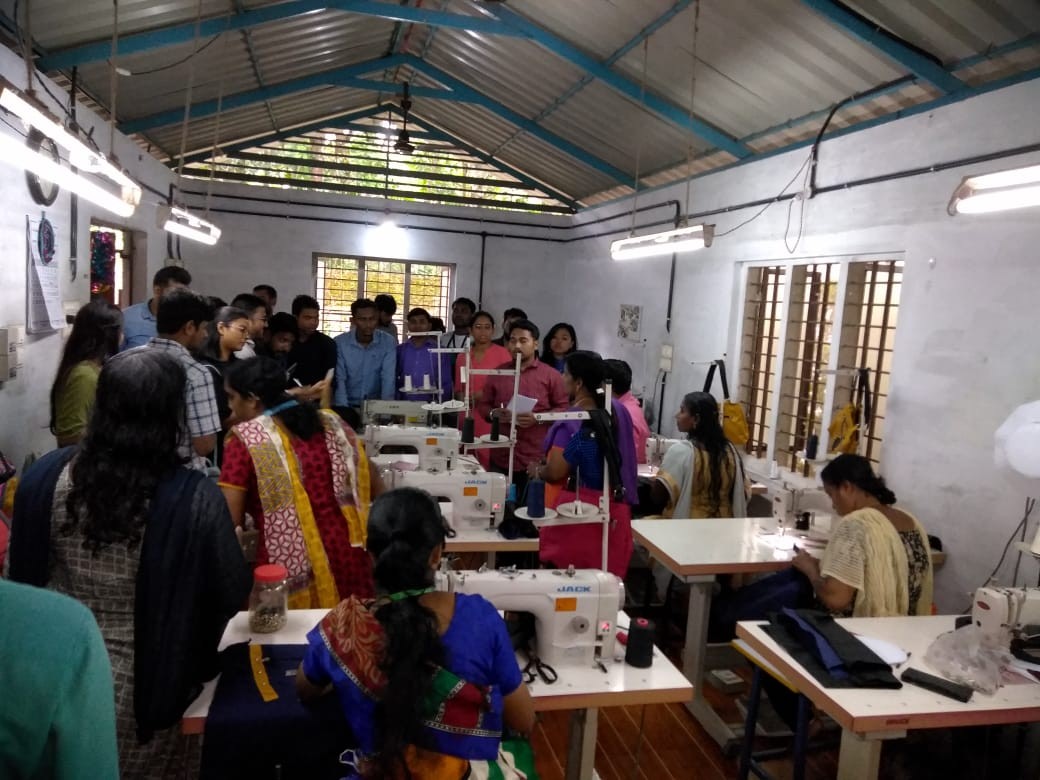
The programme majorly helps the participant to understand the role of CBOs, BNS–EP, CRP-EP, BPM-SVEP and mentor in livelihood promotion activities in the block. The programme also makes the BPMs understand the SVEP project through its business management aspects like Business Plan preparation, Book Keeping, Performance Tracking Systems and proper monitoring mechanisms in place. Concepts of ‘Local Economic Development’ and ‘Value Chain development’ are also imparted through means of interactive sessions and games, making learning enjoyable and the concepts being easily communicated to the participants. The Kudumbashree experience in non-farm livelihood, its evolution, policy level influence and strategic interventions are also emphasises as part of the programme.
Conclusion
The combination of technical sessions along with the field visits in such PAP or exposure visits helps reinforce the learnings of participants through a more structured form of group discussions, group tasks and group presentations. Further, there are briefing and debriefing sessions in morning and evening every day, which forms an integral part of the learning process of the exposure visit. The participants usually prepare a detailed work plan on the initiatives that could be replicated/ adapted in their State SRLM or organization based on the learnings from Kudumbashree exposure.
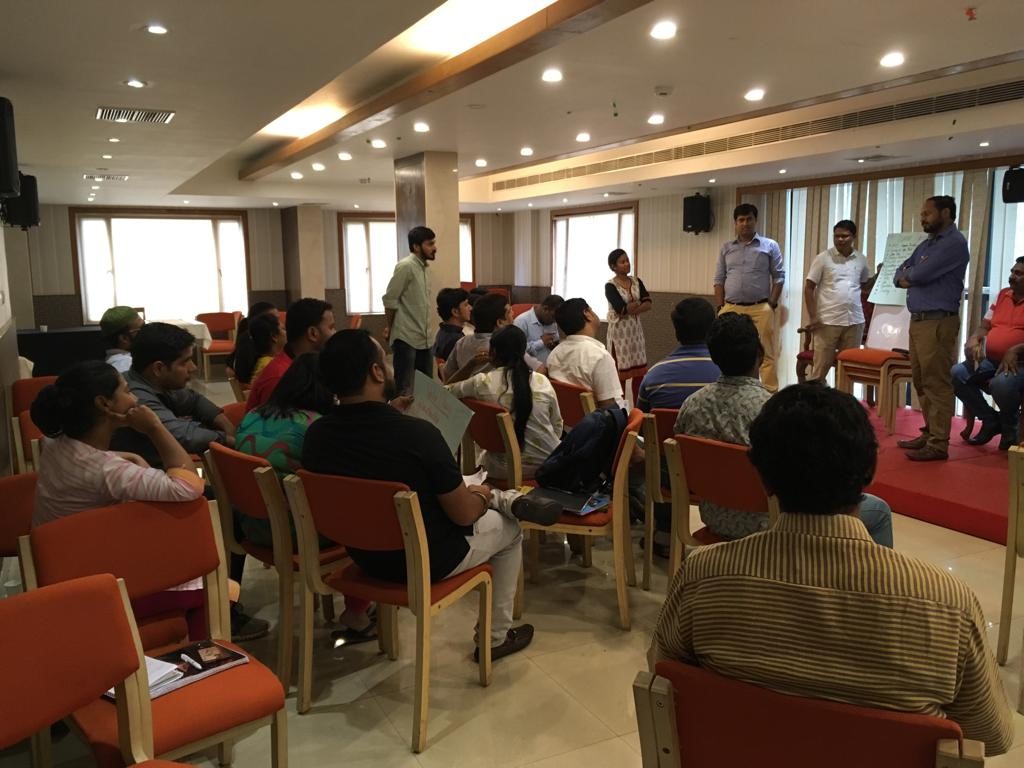
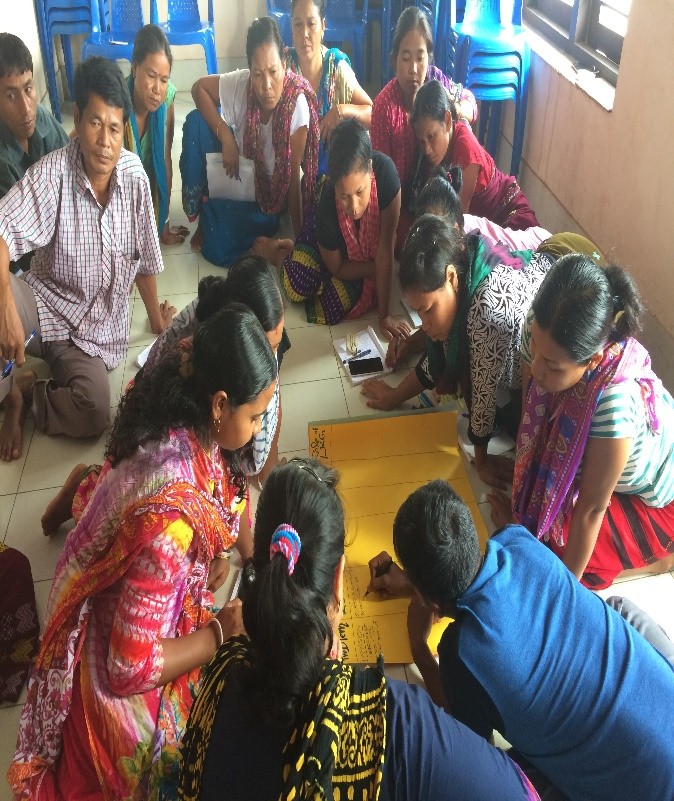
Kudumbashree District Missions who have contributed their tremendous efforts in hosting the exposure visits since April 2017 are Thiruvananthapuram, Pathanamthitta, Kollam, Kottayam, Alappuzha, Idukki, Ernakulam, Thrissur, Malappuram, Palakkad and Kasaragode districts. Mentor resource persons from NRO, Community Resource Persons from District Missions/ CDSs and Mentor Core Group (MCG) members are usually the facilitators for the PAP and exposure visits along with the Thematic Anchor for Learning Services at Kudumbashree NRO. They are responsible for conducting the field visit preparations, logistics arrangements, translation and facilitation of the entire visit sessions, reporting to NRO and settlement of the accounts. Kudumbashree NRO, thus coordinates all such visits to Kudumbashree, initiating the spark within the community and the implementing officers, what is then taken back to their own state for being replicated.
![]()
 I feel so happy to know that the women federations under Kudumbashree is always attached to their Gram Panchayat. The Panchayat provides ample space for the community leaders to come together and participate in the development process of their villages. Being an elected representative from Digyase Panchayat in Jharkhand, I promise the SHG members and community leaders of my village, that I will extend my wholehearted support to replicate the best practices from Kudumbashree in our villages, to make it as developed as the villages in Kerala.” Pushpa DeviPachayat Member, Digyase GP, Bhedo Block, Ranchi, Jharkhand (Visited Karakurussi Gram Panchayat in Palakkad)
I feel so happy to know that the women federations under Kudumbashree is always attached to their Gram Panchayat. The Panchayat provides ample space for the community leaders to come together and participate in the development process of their villages. Being an elected representative from Digyase Panchayat in Jharkhand, I promise the SHG members and community leaders of my village, that I will extend my wholehearted support to replicate the best practices from Kudumbashree in our villages, to make it as developed as the villages in Kerala.” Pushpa DeviPachayat Member, Digyase GP, Bhedo Block, Ranchi, Jharkhand (Visited Karakurussi Gram Panchayat in Palakkad)
